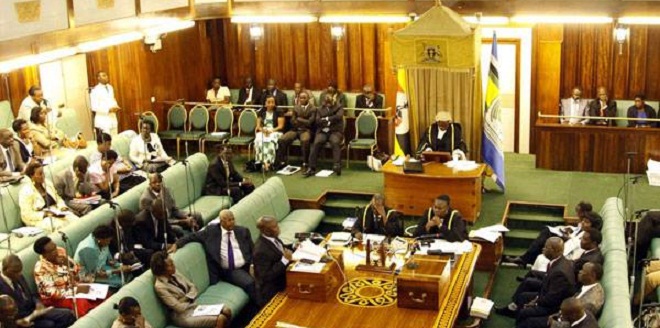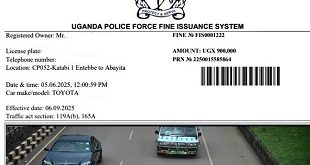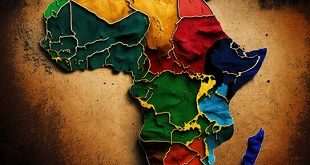
OPINION: By Andrew Mwenda
Why criticising MPs for demanding more benefits is misguided and what can be done about it
Our MPs want Shs200 million each to buy cars. They want their wages and allowances increased. They also want Shs68 million spent on their funeral when they die. The public is angry. What more evidence does one need to confirm that our MPs are indeed greedy?
Unfortunately, vilifying MPs over their unending financial demands shows how disarticulated our pundits are from the reality in our country. A better approach requires us to look into the structural incentives that drive MPs into behaviours that our `intellectuals’ describe as selfish and greedy. We need to look at the facts.
Fact One: The stories about MPs being paid too much money are almost always shortly followed by another series of stories of MPs being financially bankrupt or highly indebted. Some MPs have ended up in jail over debts and it gets worse with every new batch of MPs. The last parliament had nearly 50% of MPs not earning their salary because it was being deducted at source to pay their debts.
So how come being so highly paid has not made our MPs rich. It appears being a legislator in Uganda imposes onerous financial burdens on an MP, and eventually has serious implications on the independence of parliament. Financially distressed legislators cannot resist bribes from private and public officials who want to game the system. They even fail to exercise oversight over officials that misappropriate public funds.
Fact Two: Our nation is blessed (or cursed) by a very high anti-incumbency bias. In every election, more than 60% of MPs are not returned. In USA only 10% of legislators expect to lose their seats in an election. This high anti-incumbency could be because many MPs seeking reelection are financially distressed and cannot satisfy the high expectations from the electorate who think they are rich. Because every five years we have a near-new parliament, we cannot say we have an entrenched legislative group. Yet in spite of this, the demands for increased allowances remain.
Therefore, it should be obvious that this `greedy’ behavior of our MPs is not an individual’s choice, but rather a structure of incentives imposed by the nature of the electoral process in a poor agrarian society. The question for us should be: what happens when you have electoral competition in an ethnically diverse society where 70% of the population is made up of poor illiterate or semi-literate peasants?
Karl Marx argued that every society is built on an “economic base” – the hard reality of human beings who must clothe, feed and house themselves. How people organise to solve these basic existential problems will differ from society to society and from epoch to epoch. For instance, a society can be pastoral, built around hunting, or structured into an industrial whole.
Whatever form people use to solve their basic existential problems, they will need a superstructure of non-economic activity and thought; it would need to be bound together by customs or laws, supervised by the clan or government and inspired by religion or philosophy. This super-structure, Marx argued, cannot be selected randomly but must reflect the foundation on which it is raised. Hence no hunting community could evolve (or use) the legal framework of an industrial society; and no industrial society can use the conception of law, order, and government of a primitive hunting village.
Yet this is exactly what the postcolonial state inAfrica is doing i.e. superimposing institutional frameworks of an industrial society on an agrarian one.
Uganda’s specific context makes it a predominantly peasant society. Peasant agriculture is heavily reliant on nature, which is capricious. The vagaries of weather have across time and space fostered specific social adaptations. James Scott in `The Moral Economy of the Peasant’ calls this “the subsistence ethic.” Patterns of reciprocity, patron-client ties, extended family systems, etc. are social institutions developed to ensure the basic needs of the community are met.
For instance, when someone in the village has a problem, he goes to a better off neighbour, relative, in-law or friend for assistance. In doing this, the help seeker is not acting blindly. His upbringing has given him a fund of moral values and a pattern of expectations of how those from whom he seeks assistance will respond to him.
This, itself is based on how others in his community pursued similar goals before him. Equally the rich neighbour or family member has a clear understanding of his moral obligation to such a request. Not to help a relative in need attracts social sanctions in form of a bad reputation or negative gossip.
This moral economy has powerful implications on leadership in peasant societies. To win people’s trust and, therefore, be able to lead them, the better off person must cultivate a reputation of being a kind and generous person. Many rich people do this at private expense. Others with positions of state use the public purse. This generosity is what legitimises their wealth within the poor community. (In industrial societies it is social responsibility by rich companies and charitable institutions like the Bill and Melinda Gates Foundation).
The rich in poor agrarian societies who do not exhibit generosity regardless of the source of the money (private or public) lose the confidence of the community. Such people do not win elections.
In Uganda, therefore, peasants look at MPs as the source of solutions to their existential problems. They expect their MP to help them when they need medical care, to meet funeral expenses, to get them a job etc. This places a heavy financial burden on those who seek public office through elections – hence the financial insolvency of our MPs.
So why is such patronage resilient? It is because it is the most cost-efficient, cost effective, and (most critically) the only affordable currency of reproducing power. Our nations are too poor to afford a wide range of public goods and services delivered through impersonal institutions. Besides, within their peasant moral universe, our people do not see it as corruption when a politician extends personal generosity using public funds.
This is because they don’t have a conception of the separation of the private finances of the politician and the public finances of the state.
The solution is to create a distance between MPs and their constituents. Let political parties, not individuals, contest for elections. After elections parties can appoint MPs proportional to the votes they got.
This empowers the party bureaucracy (which selects the MPs) because it can be bribed. But it has less corrupting influence on individual MPs and parliament as an institution. Rwanda and South Africa have it. Let Uganda try it too.
****
amwenda@independent.co.ug
 The Independent Uganda: You get the Truth we Pay the Price
The Independent Uganda: You get the Truth we Pay the Price




Brink Lindsey described the 1990s as the age of abundance with rising incomes, growing capital markets, and accelerating flows of money and investment. Untroubled by want and scarcity, Americans fought over values both domestically, leading to culture wars, and
internationally, leading to expanding interest in human rights and the international protection agenda. By the end of the first decade of the 21st century, the age of scarcity seemed to have made a stunning comeback with alarmist scenarios of food, fuel, and water scarcity, fragile financial and banking systems and vulnerable ecosystems. Here Lindsey was talking about states, it should not be surprising to Mwenda that our MPs who are human souls
get fat cheques on the 31st and by the mid of the following month, they are empty. What I want to reveal to Mwenda is that, it is not always the poor who are highly indebted. For instance, where will the poor obtain guarantees (collateral) for their loans? Man has got an insatiable desire for almost anything.
On another day I will introduce the doctrine of ‘balance of interests’ and the ‘regime theory.’ For today, let’s pretend that I had a brief with the ghost of Rousseau.
Rousseau said, “every man has naturally a right to everything he needs; but the positive act
which makes him proprietor of one thing excludes him from everything else. Having his share, he ought to keep to it, and can have no further right against the community” . In his philosophy on justice, social order means property rights which command respect and are protected in compliance with justice. Secondly, Rousseau advocated for the equality of rights. The equality does not mean that “the degrees of power and riches are to be absolutely identical for everybody”. By equality, Rousseau meant limitations on individual
ownership in order to subject to the general will. He pointed out that the system of property rights was based on a social contract which “sets up among the citizens an equality of such a kind, that they all bind themselves to observe the same conditions and should therefore
all enjoy the same rights. Every authentic act of the general will, binds or favours all the citizens equally”. In The Social Contract , Rousseau repeatedly favours the use of particular phrases that have a communal nature, such as “common interest”, “general good” and “general will”. The driving force for the communal nature of ownership is that, “what
makes the will general is less the number of voters than the common interest uniting them; for, under this system, each necessarily submits to the conditions he imposes on others”. Rousseau hence concludes that “the general will, to be really such, must be general in its object as well as its essence; that it must both come from all and apply to all; and that it loses its natural rectitude when it is directed to some particular and determinate object.”
If the teachers and doctors can’t be accorded a living, why do we have to look after a dead MP?
Simple but unfortunate answer is because it’s the MPs that make laws
1.I was surprised by the way Ugandans reacted when they discovered that MPs would receive free cars. You mean they had raised your hopes in that you expected wonders from them?
2.In UK ,the Independent parliamentary Standards Authority regulates MP’s business costs and salary. Currently, a British MP earns 74,962 pounds.I have always asked myself why those who are able get alot of freebies.
3.Btwn1789-1975 ,the perdiem for Senators was between 6$ & 20 $and yet the biggest chunk of policies were passed during their time .Currently, there is alot of redundancy by MP’s in most parliaments actually they misuse their tongues a lot you all saw the dilemma the British MP’s put UK in with the Britex.issue.
4. Ministry of Finance is to blame for all this mess and extravagant spending by govt for them once you budget for an item that financial year you receive it they don’t prioritize .If Young Ugandans who earn just 1m as salary can afford cars how about our very local MP’s?Of course we copied this life style from the rich nations where the welfare of CEOs is more important than a company they are entitled to Chefs,Holidays,Drivers (damn it ) how does Africa fit in all this???
5.How could the chaps from West Nile burn the Church including rosaries?Mbu its coz the current Bishop is not from their region I don’t know why am saying this but let me say it;People from various tribes tend to despise others; e.g the Baganda beleive they r better than the Basoga,The Acholi and Langi r the kings in Northern Uganda they despise the Lugbara,Madi,The Bakiga despise the Bafumbira ,the Batoro do the same to the Bakonzo,the Bahima despise the Bairu we must stop this habit otherwise on the day of Pentecost we shall suffer .